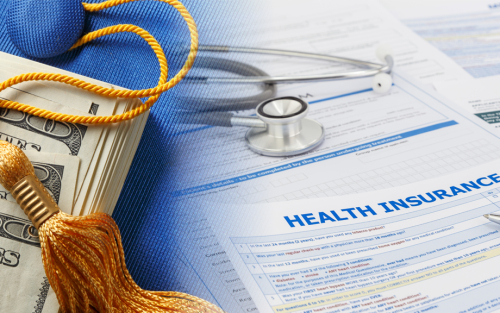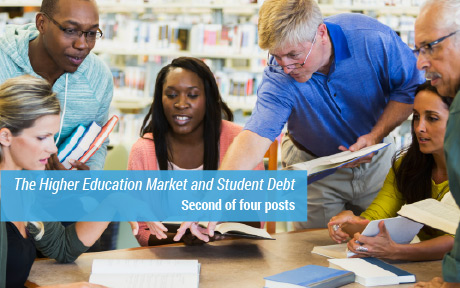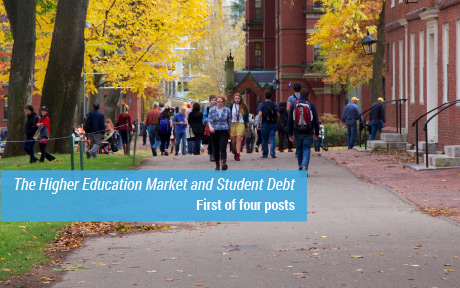When College Might Not Be Worth It

In our last post, we showed that the economic benefits of a college degree still far outweigh the costs for the typical graduate, with a healthy and consistent return of 12 to 13 percent over the past few decades. But there are many circumstances under which college graduates do not earn such a high return. Some colleges are much more expensive than average, and financial aid is not guaranteed no matter which college a student attends. In addition, the potentially high cost of living on campus was not factored into our estimates. Some students also may take five or six years to finish their degrees, which can significantly increase costs. Further, our calculations were based on median wages over a working life, but half of college graduates earn less than the median. Indeed, even when paying average costs, we find that a college degree does not appear to have paid off for at least a quarter of college graduates in recent decades. In this post, we consider when college might not be worth it and explore differences in the return to college by major.
Is College Still Worth It?

A college degree was once viewed as a surefire ticket to a good job and a clear pathway for upward mobility. However, concerns about the rising cost of college and the struggles of recent college graduates to find good jobs have led many Americans to lose confidence in higher education. This shift in sentiment has become even more widespread since the pandemic, as opportunities and wages have grown for those without a degree as labor markets strengthened. Indeed, many have been left wondering whether college is still worth it. In a two-part blog series, we offer an economic perspective on the value of a college degree, updating our previous research and analysis. This first post examines the costs, benefits, and return for the typical college graduate. We estimate the return to college at 12.5 percent, a rate well above the threshold for a sound investment. Our second post looks beyond the typical graduate and finds a college degree might not be worth it for at least a quarter of college graduates.
Thinking of Pursuing a PhD in Economics? Info on Graduate School and Beyond

Becoming a PhD economist can provide a fulfilling and financially secure career path. However, getting started in the field can be daunting if you don’t know much about the preparation you’ll need and the available job opportunities. If you’re wondering what it means to be an economics researcher or how to become one, please read on. We’ll review how to prepare for a career in economics research, what an economics PhD program entails, and what types of opportunities it might bring. Economic education is a core component of the Federal Reserve Bank of New York’s mission to serve the community. To empower would-be economists, this post provides information for students who seek a career in economics research. We hope this information will be helpful to students interested in economics, regardless of their background and economic situation. This information is most applicable to students applying to programs in the United States.
Do Expansions in Health Insurance Affect Student Loan Outcomes?

The Patient Protection and Affordable Care Act (ACA) is arguably the biggest policy intervention in health insurance in the United States since the passage of Medicaid and Medicare in 1965. The Act was signed into law in March 2010, and by 2016 approximately 20 to 24 million additional Americans were covered with health insurance. Such an extension of insurance coverage could affect not only medical bills, but also educational, employment, and broader financial outcomes. In this post, we take an initial look at the relationship between the ACA and higher education financing choices and outcomes. We find evidence that expansions in healthcare coverage may influence both the prevalence of student loans and loan repayment behavior. The evidence suggests that individuals covered by ACA-related expansions are taking out slightly more loans and taking a longer time to start repayment.
Who Falters at Student Loan Payback Time?
This is the final post in a four-part series examining the evolution of enrollment, student loans, graduation and default in the higher education market over the course of the past fifteen years.
The Changing Role of Community‑College and For‑Profit‑College Borrowers in the Student Loan Market
In the first post in this series, we characterized the rapid transformation of the higher education market over the 2000-2015 period, a transformation that was led by explosive growth of the for-profit sector of higher education.
The Changing Higher Education Landscape
Just Released: Are Recent College Graduates Finding Good Jobs?
Stories abound about recent college graduates who are struggling to find good jobs in today’s economy, especially with student debt levels rising so quickly.
How Colleges and Universities Can Help Their Local Economies
Policymakers are increasingly viewing colleges and universities as important engines of growth for their local areas.













 RSS Feed
RSS Feed Follow Liberty Street Economics
Follow Liberty Street Economics